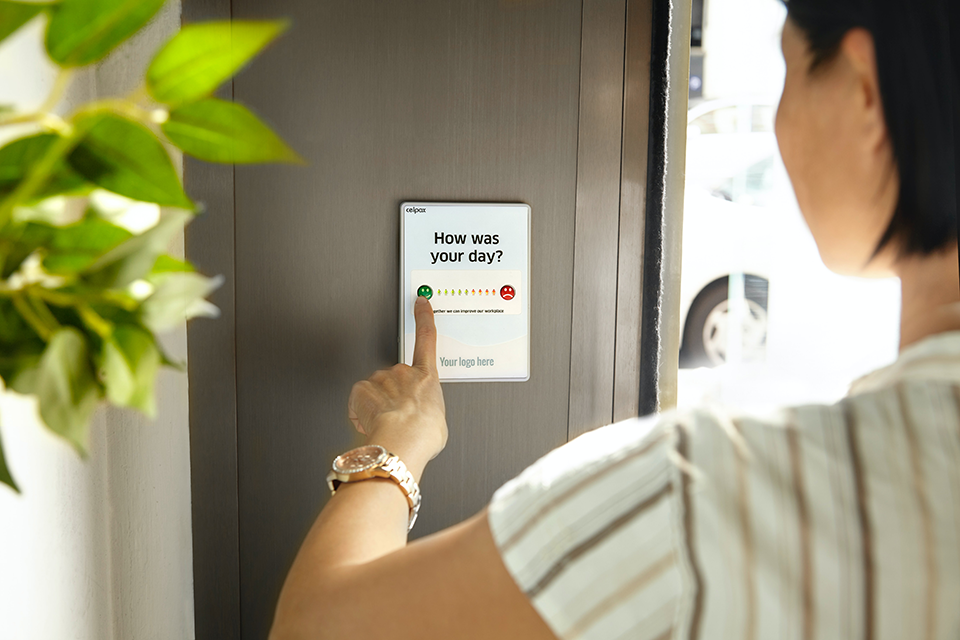The success of every company is measured by several factors, including product quality, sales volumes, and marketing strategies. All these are attributed to the hard work and dedication of employees. When employees are happy and satisfied at the workplace, they’ll always remain committed to the values and mission of the company. They’ll play all key roles diligently to maintain smooth operation within the company. It’ll be even better if the management supports and collaborates with the employees. One excellent component that plays a significant role in every company is workplace culture. Workplace culture is a belief system that involves workers sharing similar values. A recent survey found that at least 77% of people research extensively on a company’s culture before submitting their job applications. This shows the importance of positive workplace culture at all company levels and learning how to strengthen workplace culture. Workplace culture involves various company aspects such as the overall work environment, workplace ethics, management style, and the company’s core values. Having a strong workplace culture is beneficial to a company in many ways, as listed below:
- Improves teamwork
- Creates a better company image
- Increases employee retention
- Improves efficiency and productivity
- Improves company performance
- Improves employee health and wellness
It’s therefore essential for every business to strengthen its workplace culture. Below are some top tips on how to strengthen workplace culture:
1. Evaluate the existing workplace culture

It’s essential to evaluate the existing workplace culture to determine how your employees feel about it and know the necessary adjustments you need to make in both the short and long run. When evaluating your workplace culture, check issues like teamwork, engagement level, how employees show up when called to perform specific tasks, and possible office gossip. Consider also learning how to measure happiness in the workplace. If you find these things at your workplace, it’s a sign of poor workplace culture. In this case, you’ll need to pay immediate attention to eliminating the bad culture since it can harm your company’s growth and progress. Next, you should find out the kind of organizational culture you’re having and compare it to your company’s short-term and long-term goals. If you find that the current workplace culture is pulling you back or preventing you from achieving your company’s long-term goals, quick action is required. Take time to get the thoughts of your employees. Employee engagement will help you determine the gaps in your workplace culture and make the necessary changes. Experienced employees who’ve worked for many years can help you choose the evolution of your workplace culture by giving you some valuable insights.
2. Encourage employee autonomy
Increased autonomy at the workplace is a practical and effective solution to low engagement levels. Workplace autonomy involves giving workers the freedom to choose what to do, provided that it contributes to the general goals and objectives of the organization. For example, research shows that employees dislike micromanagement in the workplace. If you micromanage your workers, there are higher chances that you’ll reduce their efficiency and trust in the organization’s culture. In addition, you can encourage autonomy at the workplace by allowing your employees to exercise choice, make decisions, and develop concepts and other essential aspects in their daily operations. If you embrace autonomy in the workplace, your employees will be able to make sound decisions that they can be held accountable for if they don’t achieve the set company goals and objectives.
3. Reward valuable contributions

Employers are highly encouraged to recognize and also reward employees for any valuable contributions from time to time. According to research, companies that don’t reward their employees for their contributions experience a 31% decrease in their turnover rate. Additionally, employees in such a company have more than twice the chances of leaving the job and finding another one. Getting a 31% turnover reduction is a sign that your company will soon start struggling with operations and may even end up closing down more quickly. To avoid this, you should recognize and reward specific workplace behaviors, especially those geared towards your workplace goals and objectives. The recognition and rewards don’t necessarily have to be for the best performance. You can check other essential indicators that help propel your business in the right direction. You can also encourage peer-to-peer recognition to eliminate the need for management overhead. Employee recognition and rewards will also promote stronger relationships within the organization.
4. Give employees flexibility
Most businesses today understand the importance of employee flexibility. Flexibility, in this case, means how fast an employee will adapt to various circumstances that arise unexpectedly from time to time. For example, flexible employee will easily adjust their plans or schedule to overcome unexpected obstacles. Flexibility at the workplace promotes employee morale and motivation. You can encourage workplace flexibility by allowing your employees to work from home, take a break whenever they feel mentally tired, or take short breaks in between sessions to stretch a bit.
5. Make your employees’ mental health a priority

Regardless of your company’s niche, it’s essential to make your employees’ mental health a priority. Recent surveys show that employee burnout is common in many workplaces and can be very dangerous. To strengthen workplace culture, ensure you address health and wellness among your employees. Typically, you shouldn’t force yourself to achieve your company’s goals and objectives at your employees’ life expense. Instead, you can prioritize your employees’ wellness by creating flexible working hours and wellness days and raising paid time off. You can also encourage your employees to speak up if there are issues of concern that make them perform their daily duties poorly.
Another way to make your employees’ mental health a priority and strengthen workplace culture is by introducing a wellness program that offers programs such as guided meditation. The benefits of meditation at work are countless and it doesn’t need to be a formal, regular practice. You can offer your employees access to a meditation app such as Declutter The Mind. If you need other ideas, see our list of employee wellness program ideas.
Declutter The Mind is a meditation app for your workplace to help make your team happier and culture healthier. In an average 9-to-5 work day, just 5 minutes of mindfulness meditation can release stress, improve focus, and boost creativity. For your company, a more mindful team means better workplace culture and teamwork.
6. Advance your employees’ careers
Apart from recognizing, rewarding, and celebrating your employees for the achievements they’ve made, it’s essential to help them advance their careers to strengthen workplace culture. Research shows that most people leave their current jobs to find other new opportunities for career growth. As an employer, it’s advisable to develop a transparent plan that highlights career growth patterns. In addition, make sure the plan has steps that employees must follow to reach certain levels in their careers. When there’s transparency in the entire process, the management will be accountable when explaining the specific employees who’ve been promoted and the reasons behind their promotion. Finally, having limited career growth opportunities will always kill the morale of your employees at the workplace.
7. Build strong employee relationships

Solid employee relationships at the workplace automatically promote engagement. A lot of effort, sacrifice, and commitment are required to create solid employee relationships, including incorporating some effective team-building activities. This help makes better connections between all levels of employees. The junior staff members don’t have any fear when it comes to airing out their grievances or giving insights on what should be done to promote better workplace culture. In addition, employers should consider the cultural and physical work environment to enhance collaboration and increase employee productivity. Some of the team-building activities you can incorporate include taking lunch together, having donut chats, playing pub trivia, volunteering, etc.
8. Embrace transparency
Transparency at the workplace helps the employees and the entire organizational structure. Trust plays a significant role in promoting workplace culture. To get a transparent workplace culture, ensure your company is well equipped with the latest collaboration and communication tools. According to experts, outdated tools are barriers to transparency, especially in giant corporations that coordinate operations using multiple offices or when employees work remotely. It’s your responsibility to improve the efficiency in connecting your employees to make information sharing easier. You can also promote transparency in your company by sharing success stories and challenges with your employees. The success stories will motivate your team and develop positive mindsets.
9. Timely give and receive feedback

You can strengthen your workplace culture through timely giving and receiving feedback. This tends to be a challenge in many companies. For example, you might be giving out feedback to your employees using different channels and fail to get any feedback. In this case, it’ll be difficult to understand whether you’re communicating or not. If no one is willing to share their thoughts and ideas about a particular subject, you should be worried as an employer. You can also incorporate other aspects to get feedback from your employees, including employee engagement surveys. These will help you determine any possible problems and issues of concern that might be affecting your employees, who are the critical assets to your business. Remember, when your employees aren’t satisfied or unhappy, you could lose more in the long run, mainly due to low efficiency and productivity levels. Always recognize your employees for different milestones and be ready to provide real-time solutions to any problem.
In conclusion, these are the top tips to help you strengthen workplace culture. Remember, you can’t achieve a great workplace culture overnight. This will happen slowly, depending on how you incorporate the tips above.







